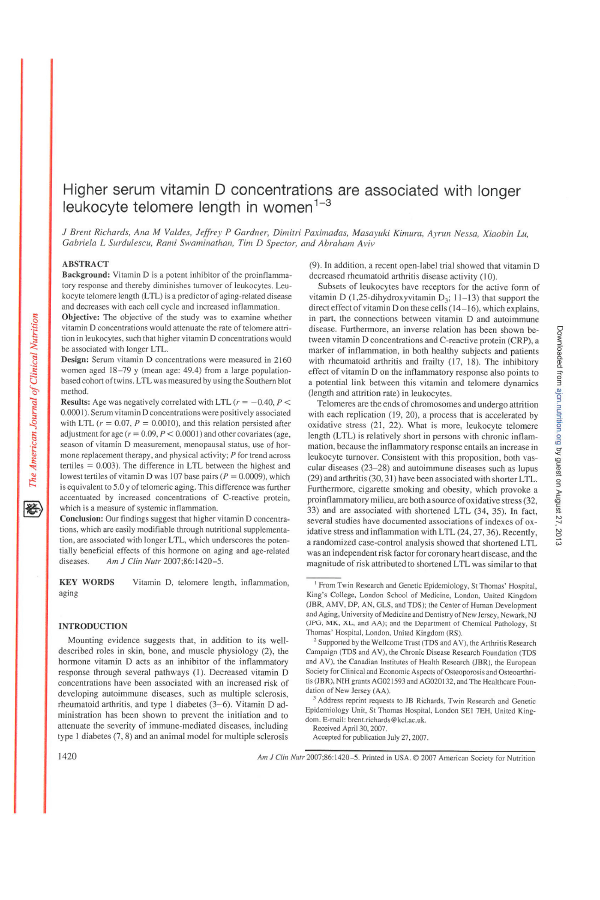Studies & Research

Higher serum vitamin D concentrations...
"...vitamin D may play a role in the modulation of LTL, which is related in aging and age-related disease"
Download- Download: PDF
Excerpt
Mounting evidence suggests that, in addition to its well-described roles in skin, bone, and muscle physiology (2), the hormone vitamin D acts as an inhibitor of the inflammatory response through several pathways (1). Decreased vitamin D concentrations have been associated with an increased risk of developing autoimmune diseases, such as multiple sclerosis, rheumatoid arthritis, and type 1 diabetes (3-6).
Vitamin D administration has been shown to prevent the initiation and to attenuate the severity of immune-mediated diseases, including type 1 diabetes (7-8) and an animal model for multiple sclerosis (9). In addition, a recent open-label trial showed that vitamin D decreased rheumatoid arthritis disease activity (10)..
